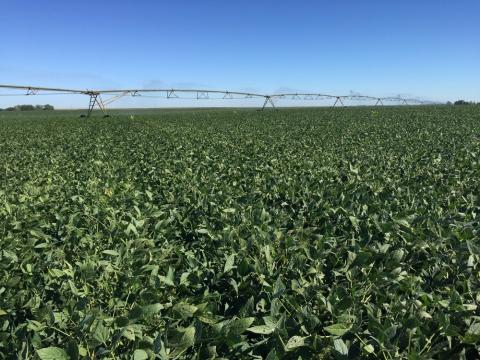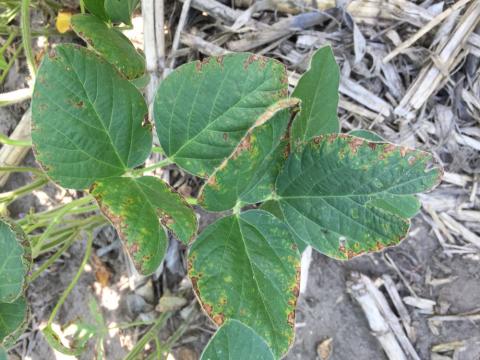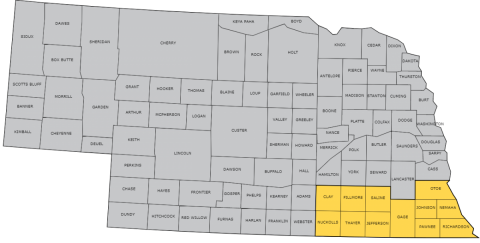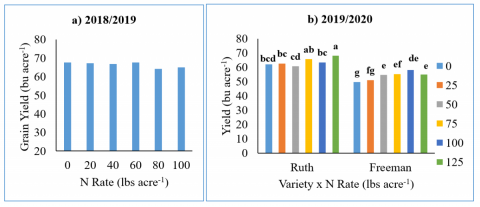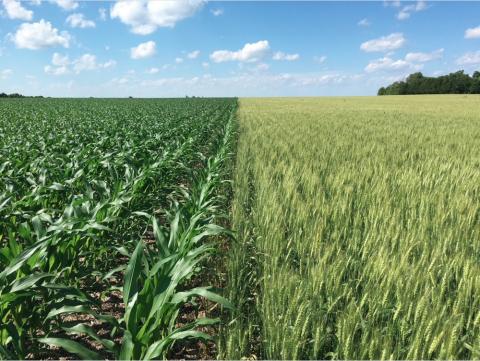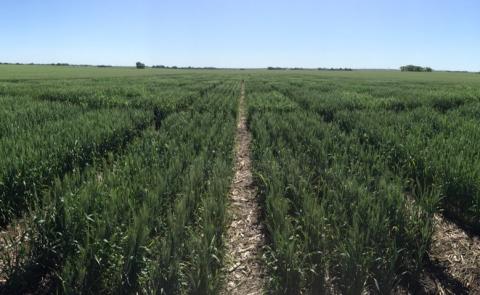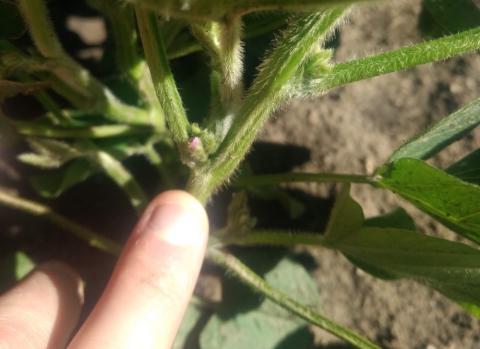Soybean Micronutrient Management in Southeast Nebraska: Chloride
November 11, 2020
In soybeans, chloride is needed for osmotic regulation in plant cells. Deficiency symptoms are not clearly described but may include chlorosis and wilting of leaves in soybeans. Toxicity symptoms include leaf tip scorching, premature yellowing or bronzing of leaves, and leaf loss.
Soybean Micronutrient Management in Southeast Nebraska: Boron
October 29, 2020
In soybeans, boron is needed for cell walls during cellular expansion and normal development of nitrogen-fixing root nodules. Overall, soybeans are rather insensitive to boron deficiency but very sensitive to toxicity, including scorching/necrosis on the leaf edges.
New Series on Soybean Micronutrient Management in Southeast Nebraska
October 8, 2020
We are bringing you an extended series of CropWatch articles on micronutrient fertility and plant nutrition for soybean production in southeast Nebraska.
Improving Nitrogen Management in Dryland Winter Wheat Production
September 3, 2020
Over the past two years of the study across multiple locations, we found that yield response to applied N rates was evident only in the wet year.
Adding Winter Wheat to a Crop Rotation
September 2, 2020
Would you believe that some growers are adding winter wheat to their rotation to improve soil health? A healthy functioning soil provides numerous local ecosystem benefits including improved water quality, flood and drought mitigation.
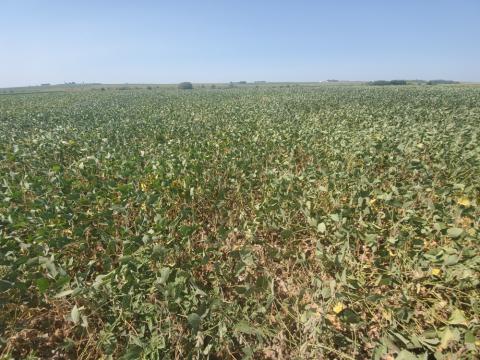
Harvesting Soybeans for Hay or Silage
September 1, 2020
The decision to harvest as forage (hay or silage) or grain should be based on economics. However, the decision to not harvest soybeans as grain does need to be made as soon as possible to capture the forage value of drought-stressed soybeans.
Winter Wheat Varieties With an East and South Central Nebraska Fit
September 1, 2020
Variety selection and disease management in this higher rainfall region of Nebraska are the two most important management factors driving yield.
Extension Crop and Pest Reports (June 22-26)
June 22, 2020
Extension educators report on what they are seeing in the fields this week in the northern panhandle, Saline, Jefferson, Gage, Colfax, Dawson Buffalo and Hall counties.


